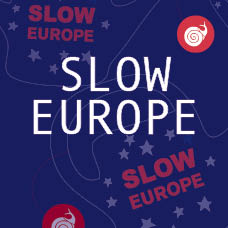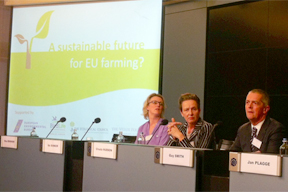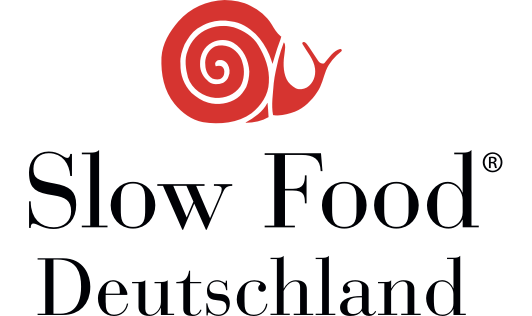Konferenz: Nachhaltige Zukunft der EU-Landwirtschaft
EU-Konferenz: Landwirtschaft nachhaltig gestalten

Die gegenwärtige GAP-Planung der Union läuft von 2013 bis 2020. Eines ihrer wichtigsten Ziele ist das sogenannte "Greening", also die zunehmende Ausrichtung der Landwirtschaftspolitik auf Nachhaltigkeitsfaktoren und Umweltschutz. Schon jetzt kritisieren aber Umweltverbände und Zivilorganisationen in ganz Europa, dass der "Greening"-Ansatz der EU zu kurz greift und das Ziel einer nachhaltigen Gestaltung der Landwirtschaft nicht erreicht wird.
Im Jahr 2020 läuft das gegenwärtige Programm der Gemeinsamen Agrarpolitik der EU aus. Wie muss die Politik danach gestaltet werden, um ihre proklamierten Nachhaltigkeitsziele endlich zu erreichen? Die Konferenz "Eine nachhaltige Zukunft für die EU-Landwirtschaft?" geht dieser Frage nach. Das Symposium findet unter Beteiligung des EU-Landwirtschaftskommissars Phil Hogan statt und wird von der europäischen Umweltdachorganisation EEB veranstaltet, in der auch viele deutsche Verbände organisiert sind.
Ursula Hudson, Vorsitzende von Slow Food Deutschland und Mitglied im Vorstand von Slow Food International, wird die Positionen von Slow Food vortragen.

Ursula Hudson (Mitte), Vorsitzende von Slow Food Deutschland und Mitglied im Vorstand von Slow Food International, am 4. März 2015 in Brüssel bei der EU-Konferenz "A sustainable future for EU Farming?" | © Marta Messa
12.3.2015 - Die Mitschrift der Rede von Ursula Hudson (Nachtrag zur obigen Meldung vom 4.3.2015)
Slow Food looks at food and food production holistically. There is no food that is not embedded in specific cultural, social, ecological and economic contexts. Looking at food without its context means not understanding that food has a central role in an individual’s life, that it is centre stage when it comes to the well being of societies, as well as for the future of humanity.
It seems that the central role of food - in a holistic sense - has been neglected for far too long. Farmers, the people who produce our food have learned that they have to produce for anonymous markets rather than for people – which results in an ever-widening gap between producers and consumers. Furthermore, the disregard of the importance of food has led us to a situation we all have to recognize:
We are facing
- the rapid depletion of resources, including fertile soils - which are the basis for good and nutritious food
- diminishing agro-biodiversity with all its dangerous consequences
- hunger
- increasing inequality, social and global instability
- lack of sovereignty for farmers as well as consumers, i.e. overall food sovereignty
- dependency on markets and on decisions of the so-called market players which are driven not by the responsibility towards people or the future of the planet earth as a place for future generations to live and on which to grow their food, but by the short term responsibility towards shareholders and capital.
The dominant model under which food is produced and consumed worldwide at the moment is mainly driven by narrow, solely economic ideas of growth. This type of growth does neither care for people nor for resources. And allow me a word on the mantra of “having to feed 10 billion people by 2050”: it is not about “feeding the world”. The wording as well as the concept is wrong. Shouldn’t the world be able to feed itself?, hence it is all about providing the rights- and education-based framework for the majority of the people on this planet to feed themselves. The idea of having to increase production and volume is far too simplistic and does not take into account that we produce at the moment food for 12 billion people. If the problems were solved with increase of production, why haven’t we solved them yet? It is not that easy, providing the conditions under which people are able to feed themselves is work – not just increased production.
Denying the fact, that the current model under which food is produced and consumed is not sustainable means not facing the real issues and ones responsibility of future generations being able to live on and from planet earth. Only a sustainable food system can play a key role in the fulfilment of the agenda of the Commission for jobs, fairness and democratic change. In order to make the food system sustainable we have to look at it with a comprehensive approach. At the moment, issues relating to the food system within Europe are largely regulated by the Common Agricultural policy, while other aspects that strongly influence the food system are regulated separately. However, food cuts across all sectors, whether it is production, health, culture, education and others.
We have to meet the challenges we are facing in different ways to those we have tried to up to now, since this is our only chance to respond responsibly to the pressing issue of planetary boundaries, of building resilient, bio-diverse food systems that will provide in times of increasing instability and diminishing resources.
Slow Food is convinced that this can only be achieved by radically changing direction towards the creation of an EU Common Sustainable Food Policy. This policy should adopt a holistic approach and the overarching principle of sustainability should serve as the basis for food sovereignty, food security and safety, food quality and diversity, and for the value of food.
The food system we need for the future is:
- environmentally sustainable – i.e. it maintains the quality and renewability of natural resources over time, preserves biodiversity and guarantees the health of ecosystems.
- economically sustainable – i.e. it generates long term income and work places, achieves eco-efficiency and provides a competitive environment, where quality prevails over quantity and prices reflect the true costs of food production as well as the true value of food.
- socio-culturally sustainable – i.e. it guarantees fair access to fundamental rights (safety, health, education and other) and conditions of well-being within a community and recognizes the cultural value of food, of a product.
These three aspects are intricately interwoven and cannot be dealt with separately.
Key areas of the envisaged sustainable food system, that makes the agro-food system more resilient, are in brief:
- conserving and promoting biodiversity and eco-systems
- adopting sustainable production methods
- promoting an energy efficient system
- creating short food supply chains
- keeping food waste and losses to a minimum at all stages of the food supply chain
- promoting a new consumption model where people are not just consumers but people who take responsibility for their food choices and hence become co-producers
- protecting and building on local knowledge
- educating for food knowledge and competence and for a better food system – in all: for a better future
Slow Food wants to see Europe embrace an agro-food system that respects and protects local products and the cultures of their territories and community needs. It wants to see Europe to actively promote such an approach in the current debates on the future of Europe’s food system. A sustainable future for EU farming can only be a Common Sustainable Food Policy.
Let us not shy away or carry on as usual. It is time for a radical change: Anything else would be irreversibly irresponsible. We cannot continue with present policies, or rely on slight adjustments. We have had 50,000 people, small scale farmers as and consumers together, on the streets of Berlin during this year’s Green Week in January demonstrating for a better, a more sustainable and a fairer food system. This is a strong expression of civil society wanting and making a change. And this should be taken seriously.
Civil society wants and we all need the transformation from solely production- and quantity-based agricultural policies to a sustainable policy now, that puts the environment, food and people in first place. It is now high time that we had a Common Sustainable Food Policy.
Ursula Hudson, Slow Food: Changing from Common Agricultural Policy to Common Sustainable Food Policy (Conference “Sustainable future for EU farming” – Brussels March 4 2015)
Weitere Informationen:
